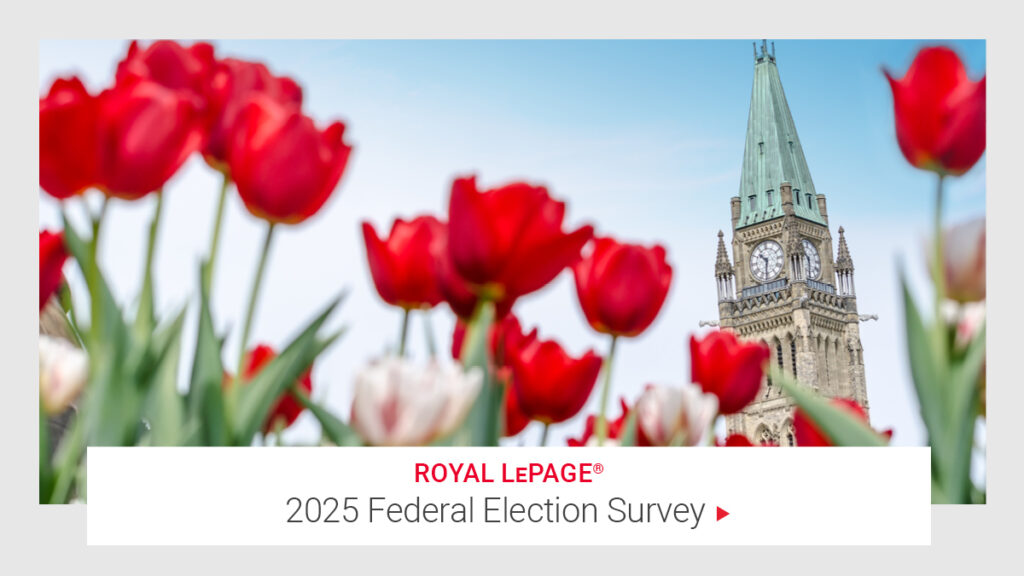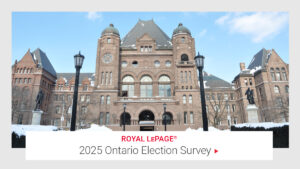
According to a recent Royal LePage® survey, conducted by Burson, more than half (55%) of Canadian adults say that a party or candidate’s positioning on policies related to housing will influence their vote in the upcoming federal election; 39 per cent say it will not. When broken out by age, younger Canadians are more likely to be focused on housing. Seventy-two per cent of generation Z respondents (aged 18-28) and 59 per cent of millennials (aged 29-44) say that a party or candidate’s positioning on housing will have an impact on their vote, higher than those in generation X (50% of those aged 45-60) and baby boomers (48% of those aged 61-87).
“While much of the discussion has been centered on navigating the rough waters of the U.S. trade conflict, housing affordability has re-emerged as a major priority this election cycle,” said Phil Soper, president and CEO, Royal LePage. “Initiatives that support young families and first-time buyers, especially in high-cost markets, have been proposed across the political spectrum, whether by easing the path for developers to build more homes or offering financial relief to buyers. But, tackling Canada’s chronic supply shortage will take more than short-term solutions. Despite recent market shifts – including lower interest rates and increased inventory – many young voters recognize that these changes alone are not enough. They are seeking real, lasting solutions that can turn the dream of home ownership into a reality.”
Key highlights of the survey:
- Nationally, 55% of Canadians say a party or candidate’s positioning on policies related to housing will influence their vote in the upcoming federal election; 39% say it will not.
- Generation Z and millennials are more likely than generation X and baby boomers to say their vote will be influenced by a candidate’s stance on housing policy.
- Housing ranks as the third most important election issue, after the economy and health care.



